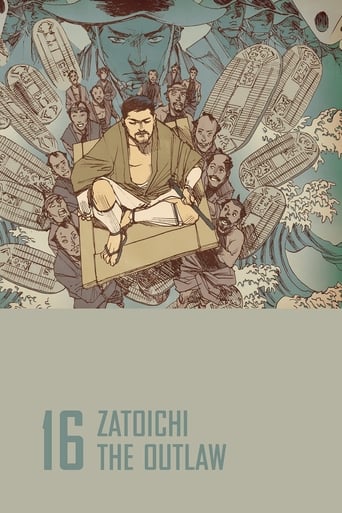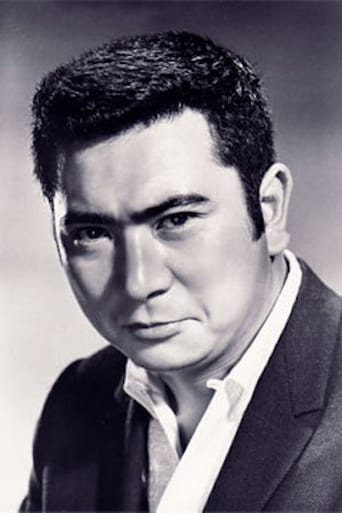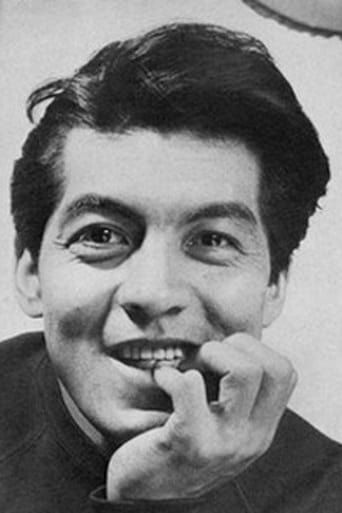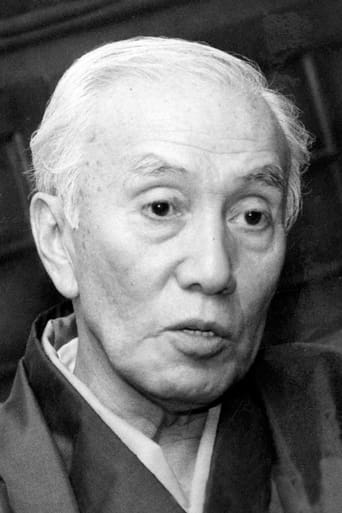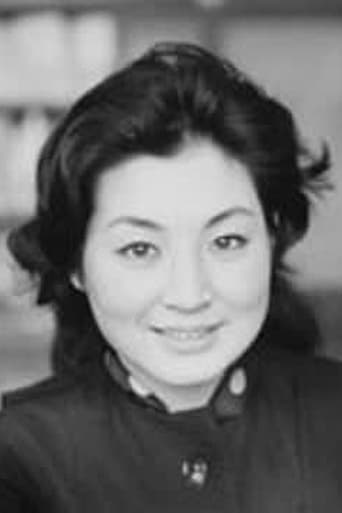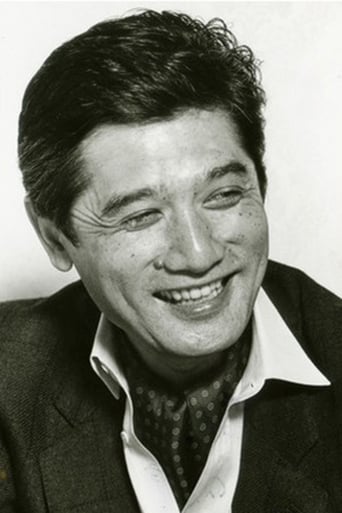Manthast
Absolutely amazing
CrawlerChunky
In truth, there is barely enough story here to make a film.
StyleSk8r
At first rather annoying in its heavy emphasis on reenactments, this movie ultimately proves fascinating, simply because the complicated, highly dramatic tale it tells still almost defies belief.
Sienna-Rose Mclaughlin
The movie really just wants to entertain people.
kluseba
Zatoichi the Outlaw is the sixteenth entry in the franchise about the blind masseur, skilled swordsman and lowly yakuza. It's also the first film to be produced by Katsu Productions, lead actor's Katsu Shintaro's own company. The movie remains faithful to the franchise's typical storytelling of the main character traveling across rural Japan during the shogunate's final years in mid-nineteenth century in order to support the helpless in their struggles with exploitative authorities. However, there are also a few new elements such as more explicit fight scenes with severed limbs and fake blood. The plot is also more complex and epic than usual. To keep it short, Zatoichi travels to a town led by a sword-less ronin who leads a peasant movement advocating the abstention from drinking, gambling and whoring and teaching how to cultivate rice more efficiently. This ronin is supported by a seemingly honest yakuza and boss who appears to be very close to local farmers. However, another boss who is backed up by a corrupt government official has interest in making money as he organizes a festival promoting the use of alcohol, indepts young peasants by making them participate in crooked gambling and establishes a new brothel. Zatoichi gets caught in between the opposing parties and decides to help the sword-less ronin and the honest yakuza boss. He accidentally kills a peasant that was sent to attack him and injures another. When the corrupt boss confronts him, Zatoichi kills him and goes into hiding. However, Zatoichi soon realizes that his actions have changed things for the worse. The dead peasant's sister is abused by the corrupt government official and then forced into prostitution. The injured peasant is obsessed with killing Zatoichi. The honest yakuza has taken the dead boss' place and has been corrupted by greed and power. The sword-less ronin gets is accused of treason and gets imprisoned. One year after he left the village, Zatoichi is back to repair his mistakes by using his sword.Even though several critics had a negative perception of Zatoichi the Outlaw, I happen to think it's one of the best entries in the franchise. First of all, the camera work is splendid. It's calm, focused and precise and the landscapes are even more colorful than usual. The score is dramatic and adds a solid dose of intensity to the film. The numerous characters are intriguing and have depth, especially since a lot of them are going through profound and at times unpredictable changes. The movie also has a more ideologiocal and philosophical note as the sword-less ronin tries to organize collective farming and suggest Zatoichi to lay down his sword. This movie almost has a socialist message which is quite interesting. The fight sequences are more intense as well thanks to more explicit scenes with torn hands and heads and the use of fake blood. It makes the brief fights more realistic.However, the film has a few minor flaws. Even though new writers and even a new director were hired for this film, the plot is still mostly predictable. Also, there aren't many sword fights and the few that are shown aren't as skillful as one is used to. The fights are more brutal and realistic but less artistic and dynamic, taking away from the charme of the series.In the end, Zatoichi the Outlaw is still a highlight of the Zatoichi franchise in my book. The great acting performances, progressive ideologies and epic plot make this film stand out for fans of old date and new ones alike. Ignore the negative reviews and give it a try!
mevmijaumau
Zatoichi the Outlaw (not really the first time he was an outlaw) is different than its predecessors for a few reasons. First, it's the only Zatoichi film directed by Satsuo Yamamoto, a director noted for his anti-authoritarian films (and indeed, there's a political side to this one as well). It also has a new screen writing staff and it's the first film produced by Shintaro Katsu's own company, Katsu Productions.Stylistically, this movie is a bit more rough compared to its predecessors. While the pittoresque, colorful images of feudal Japan are still here, the sword-fights are bloodier. Limbs and heads are hacked off, women are raped. Zatoichi makes some truly horrible life choices that profoundly affect the lives of a nearby family, and he's never really sure whom to trust in this movie. The pacing is also unusual, making the film take place across a whole year instead of a few weeks max. Two notable actors also make an appearance; Rentaro Mikuni and Ko Nishimura.The film's highlight: Zatoichi kills a moth by throwing a toothpick at him, the stabbed moth landing on a bad guy's face.
dana6-1
I agree with most if not all of the previous commenter's Tom (bighouseaz@yahoo.com). The Zatoichi series is a great character study combined with great sword fighting and excitement.I have seen Zatoichi 1-13,15,16; I believe 14 has not been released on Zone 1 (usa). Zatoichi the Outlaw was disappointing. The story line was complicated, and seemed to be a hodgepodge of many previous Zatoichi story lines. At one point, I was wondering if I was not seeing a remake of a previous Zatoichi film.This film was disappointing because it started to depend on effects (a head rolling, limbs severed, blood) and less on the nobility of the Zatoichi character. All the previous films succeeded based on the storyline and action, and won a great following without having to resort to effects.I am just hoping that the remaining Zatoichi films do NOT follow the same trend. This is the first Zatoichi film from his studio. I highly recommend all the previous Zatoichi films -- and recommend them.
galensaysyes
If this had been done earlier in the Zatoichi series it could have been one of the best. It is good enough, as most of them are, but the plot and the characters seem too complicated for the series at this point. The situation is unusually intriguing: the farmers in the province have two champions, a benevolent boss (for once) and a philosopher-samurai who starts a sort of Grange; both run afoul of the usual local gangsters, who want the crops to fail because it increases their gambling revenues and their chances to snap up some land; their chief or powerful ally is a seeming puritan who is death on drinking and gambling but secretly indulges his own perverse appetites. (He also resembles Dracula, as the villains in the later Zatoichi movies tend increasingly to do.) These characters have enough meaning so that they deserved to be set against Zatoichi as he was drawn originally, but by now he has lost many of his nuances, and the changes in some of the characters, such as the good boss and the angry sister of a man Zatoichi has killed, need more time then the movie has to give, so that the story seems choppy, as if some scenes were missing. Other than that, the movie shows the virtues of most of the others in the series: good acting, sometimes lyrical photography, the creation of a vivid, believable, and uniquely recognizable landscape (the absence of which is obvious in the occasional episode where the director just misses it), and a technical quality that of its nature disguises itself: the imaginatively varied use of limited sets so their limitations seem not to exist. And of course there is the keynote actor, whose presence, as much as his performance, makes it all work. This must be one of the best-sustained series in movie history.
